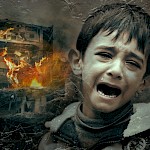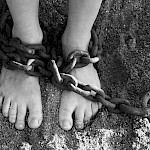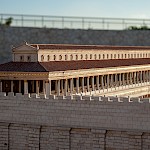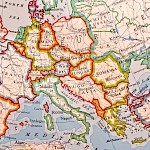The Lord Jesus Christ: His Return
Christ has accomplished the work on the cross (chapter 2). Now, having ascended back to heaven, He remains active for us in His various offices and functions (chapter 3). In the future, He will return. This return will take place in two phases: the rapture and the appearing.
The questions and answers are designed to show when these two events will occur, and their respective characters.
4.1 What do Christians wait for?
Christians wait for the coming of Christ to take (or ‘rapture’) them out of the world. This event is described in 1. Thessalonians 4:16, 17: ‘For the Lord himself shall descend from heaven with a shout … Then we which are alive and remain shall be caught up together with them in the clouds, to meet the Lord in the air…’
We learn from this that Christ will come in person, and this will take place in the air, not on the earth.
This truth of the rapture had not been revealed in the Old Testament: ‘Behold, I tell you a mystery: We shall not all fall asleep, but we shall all be changed’ (1. Cor 15:51).
Some Christians have thought they should wait for the kingdom or even try to prepare the way for it. However, Christ says, ‘Surely I come quickly,’ and the true Christian attitude is to wait for this event: ‘Even so, come, Lord Jesus’ (Rev 22:20). See also John 14:2, 3 and Matthew 24:45-50.

4.2 Are there any prophecies that have to be fulfilled before the rapture?
No - absolutely nothing. The rapture can occur any moment. In 1. Thessalonians 4:16, 17, quoted in Q 4.1, Paul says, ‘we which are alive… shall be caught up’. This shows that, even in the first century, Christians expected - and were to expect - the Lord’s coming at any moment, and certainly within their lifetime.

4.3 What does the rapture mean for Christ?
The rapture is the event Christ is waiting for now. He is the Bridegroom and it will be a joy for Him to take His bride to be with Him. It is good for us to think about this, as Paul said: ‘But the Lord direct your hearts into the love of God, and into the patience of the Christ’ (2. Thess 3:5, JND). We have an illustration of this in Isaac’s waiting for Rebecca’s arrival (Gen 24:63).
When still on earth, the Lord prayed, ‘Father, I will that they also, whom thou hast given me, be with me where I am; that they may behold my glory’ (John 17:24).

4.4 What does the rapture mean for those who belong to Christ?
It will mean blessedness; the end of all suffering, tears, and sorrow. Above all else it means that we will be with Christ forever: ‘…and so shall we ever be with the Lord’ (1. Thess 4:17). This is underlined in John 14:3: ‘I will come again, and receive you unto myself; that where I am, there ye may be also.’
It will be the happy and blessed fulfilment of the bride’s hope and longing. This is how Scripture describes it - is it true in my heart and in yours?
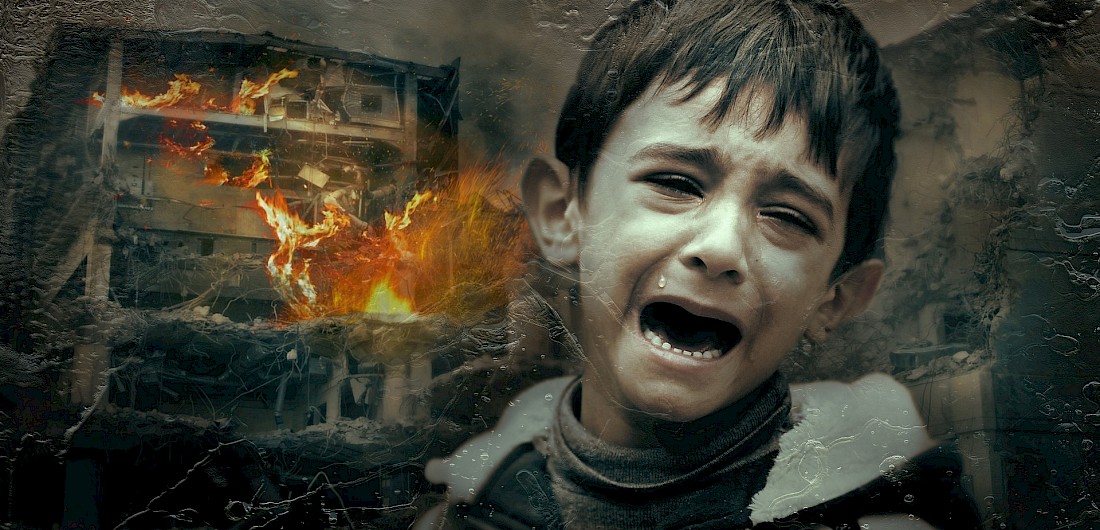
4.5 How do we know there will be a ‘tribulation period’?
The Bible tells us so. Jeremiah speaks of ‘the time of Jacob’s trouble’ (30:7). Daniel confirms: ‘…there shall be a time of trouble, such as never was since there was a nation even to that same time’ (12:1). Then the Lord mentions it again in Matthew 24:21 and Mark 13:19.

4.6 What, then, do we mean by ‘the tribulation’?
It is a time of trouble after the rapture (see Q 4.10). It will involve:
- firstly, the whole earth (Rev 3:10; Mt 24:6-7) etc.
- secondly, Israel: there will be tribulation for all of Judah, coming from the Assyrian (Isa 28) as discipline, and there will be tribulation specifically for the ‘remnant’ of faithful Jews who will be oppressed by the Antichrist (Mt 24:15ff).

4.7 What saints will go through the tribulation?
Some teach that Christians, i.e. believers composing the church, will go through the tribulation period. But is this what the Bible teaches? Not at all:
- Jeremiah 30:7 speaks of it as ‘the time of Jacob’s trouble’ so it relates to the Jews
- Daniel 12:1 speaks of it in connection with Daniel’s people - again Israel
- Matthew 24 refers to the same events as Daniel and, further, gives a number of additional proofs that the people concerned are Jews: the mountains of Judaea, the Sabbath day, etc.
- Revelation 3:10 - true, this addressed to the church in Philadelphia, but states that the faithful would be kept from the hour of tribulation, not that they would go through it
- Revelation 7:9-14 then shows that the elders (of which the church are part) are a distinct class from those who go through the tribulation.
All scriptures that mention the tribulation period therefore reinforce the same point: the saints who go through the tribulation period are not part of the church; they are not Christians.

4.8 Do Christians face trials and tribulations?
Yes. The Lord said to His disciples, ‘In the world ye shall have tribulation’ (Jn 16:33). In a general sense, everyone who really follows the Lord will experience difficulties and even ‘tribulation’ because the world is hostile to Christ. However, this is quite a different thing from ‘the tribulation.’
The passage in 2. Thessalonians 1:4-2:3 explains that the tribulations the Thessalonians were facing were quite different from ‘the tribulation’ - which is related to the coming of the ‘Day of the Lord’ (2. Thess 2:2, see Q 4.9).
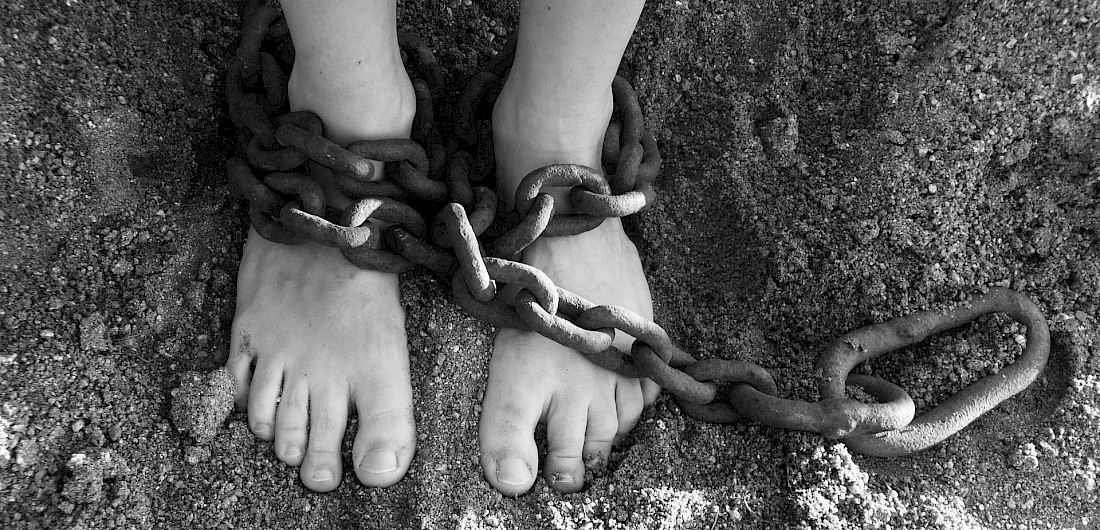
4.9 What is the ‘Day of the Lord’?
The expression the ‘Day of the Lord’ is used in the Bible to describe a time period, not a day of 24 hours. This ‘day’ will not start until after the rapture of the church (see Q 4.1-Q 4.4) and will take its course during the tribulation period (2. Thess 2:3, 4, see Q 4.11).
The Day of the Lord is characterised by terrible judgements (Isa 13:9; Joel 1:15; 2:1, 11, 31; Zeph 1:7-18, etc.) that will take place before the Lord’s appearing in glory. This ‘day’ also comprises the end of this earth (2. Pet 3:10). It therefore includes the Lord’s appearing in glory (Q 4.12-Q 4.15) and His millennial reign (Q 3.3-Q 3.6).
The Christian will not go through these judgements (Q 4.7). For him the Day of the Lord has to do with reward and, consequently, responsibility (2. Cor 1:14). In this context, the Day of the Lord is also referred to as the Day of Christ (Phil 1:10, 2:16).

4.10 When will the ‘tribulation period’ happen?
During the second half of a seven-year time period - between the rapture and the kingdom.
In Daniel’s prophecy about the 70 weeks (1 prophetic week = 7 years) in Daniel 9, there is a gap between week 69 and week 70 (Dan 9:25- 27). At the end of week 69, Christ is crucified (Messiah is ‘cut off’). Then comes the time of the church - in which we live right now - not mentioned by Daniel. So week 70 is still outstanding.
During the first three-and-a-half years of this tribulation period, God’s providential judgements will fall upon the earth (famine, wars, etc., Rev 6ff.). The last three and a half years will be much worse - a time of unparalleled trouble: ‘For then shall be great tribulation, such as was not since the beginning of the world to this time, no, nor ever shall be’ (Mt 24:21). This is the great tribulation.
This second half-week is spoken of as three-and-a-half years (or ‘times’), as 42 months, and as 1,260 days in Revelation 11-13 etc. Oppression will come from the Jewish ‘Antichrist’ and from the government of the re-established Roman Empire (the first ‘beast’ of Rev 13). In addition to this, God’s judgements fall upon the earth (see Rev 6-19).

4.11 What happens in the middle of the ‘tribulation period’?
Four important events happen in the middle of week 70 (i.e. threeand-a-half years into the tribulation period):
- Satan is cast from heaven on to the earth (Rev 12:7-9)
- The Jewish sacrifices in the temple will cease (Dan 9:27)
- The antichrist will sit in the temple and demand worship (2. Thess 2:4)
- the ‘abomination of desolation’ will be set up there (Mt 24:15).
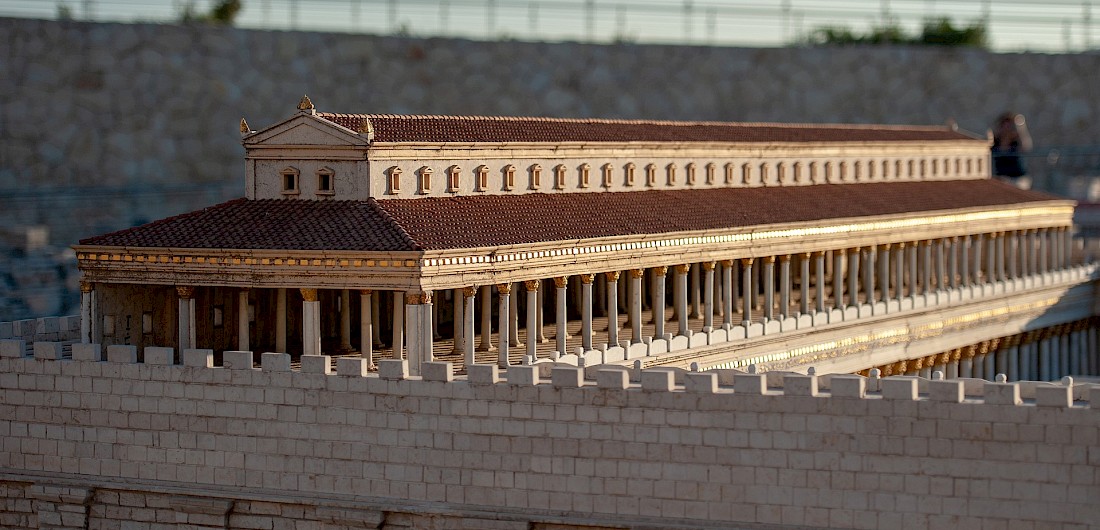
4.12 What do we mean by the ‘appearing of Christ’?
The Lord Jesus Christ will return to this earth in power, accompanied by angels (2. Thess 1:7) and by the saints (2. Thess 1:10) who had been taken to heaven at the rapture (see Q 4.1 and Q 4.2).
This event had been announced by Old Testament prophets (e.g. Dan 7:13, 14). He will come to the Mount of Olives (Zech 14:4) from where He ascended back to heaven after His resurrection
(Acts 1:9-12).
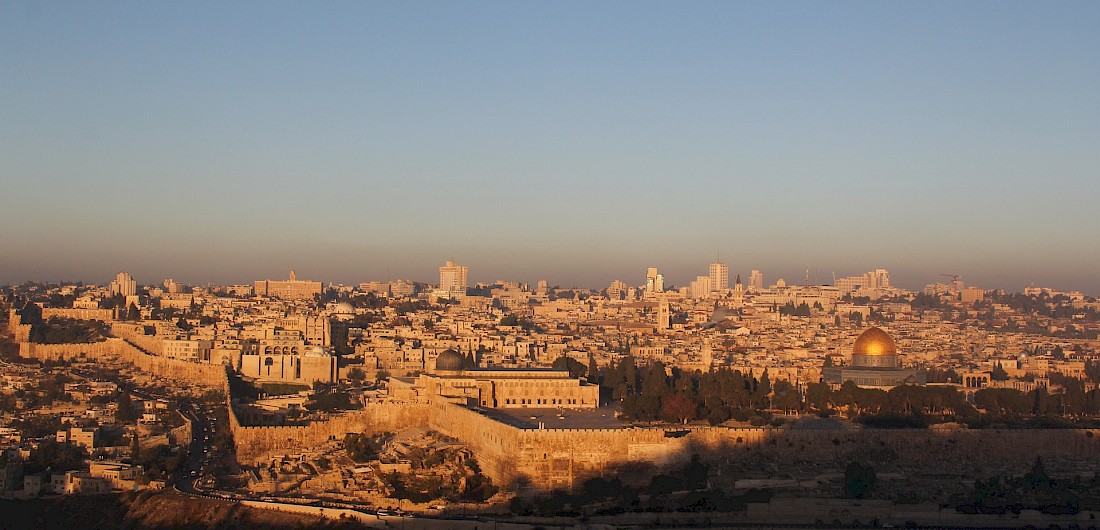
4.13 What does the appearing of Christ mean for Israel and Western Europe?
Israel or, more precisely, a minority in Israel (the ‘remnant’ - see Rom 9:27 and Is 10:20-22) will realise that Christ is the One they (nationally) crucified and will repent and accept Him (Zech 12:10-14; Rev 1:7). The majority of the people will be unrepentant and will be judged.
Western Europe is described in prophecy as the Roman Empire revived (Rev 13), as a confederation of ‘kings’ who delegate some of their power to the head of this empire (Rev 17:13). Tragically, ‘these shall make war with the Lamb’, but ‘the Lamb shall overcome them’ (Rev 17:14; 19:19). He will destroy the western European armies by the breath of His mouth (see also the ‘sharp sword’ that comes out of His mouth in Revelation 19:21).
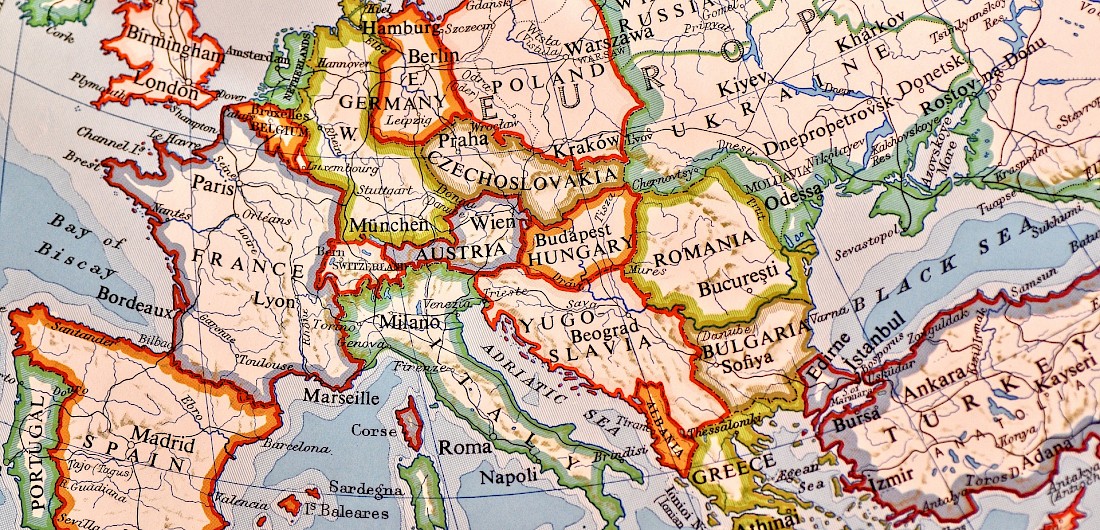
4.14 What does the appearing mean for Christ?
It will be the moment of glory and display. He had refused to be made king by men (Jn 6:15), presented Himself to Jerusalem in meekness (Zech 9:9; Mt 21:7-10) and been rejected shortly afterwards. But at His appearing, He will be universally recognised (Phil 2:10, 11), ‘glorified’ and ‘admired’ (2. Thess 1:10).
The One who once bore the crown of thorns (speaking of curse, Gen 3:18) will then wear ‘many diadems’ (Rev 19:12) as the ‘KING OF KINGS, AND LORD OF LORDS’ (Rev 19:16).

4.15 What does the appearing mean for Christians?
Although Christians wait for the rapture (Q 4.1), they love His appearing (2. Tim 4:8).
On the one hand, it will be the day of display for them when the results of the work of Christ and of their service for Him will be seen (Phil 1:6, 10; 4:1 - Q 4.9) and will contribute to the glory and admiration He receives (2. Thess 1:10). On the other hand, more importantly, it is the day when their Master - whom they followed when He was rejected - will be honoured and recognised by all.
The day of display for the ‘King of kings’ must be a day of joy for His bride.





